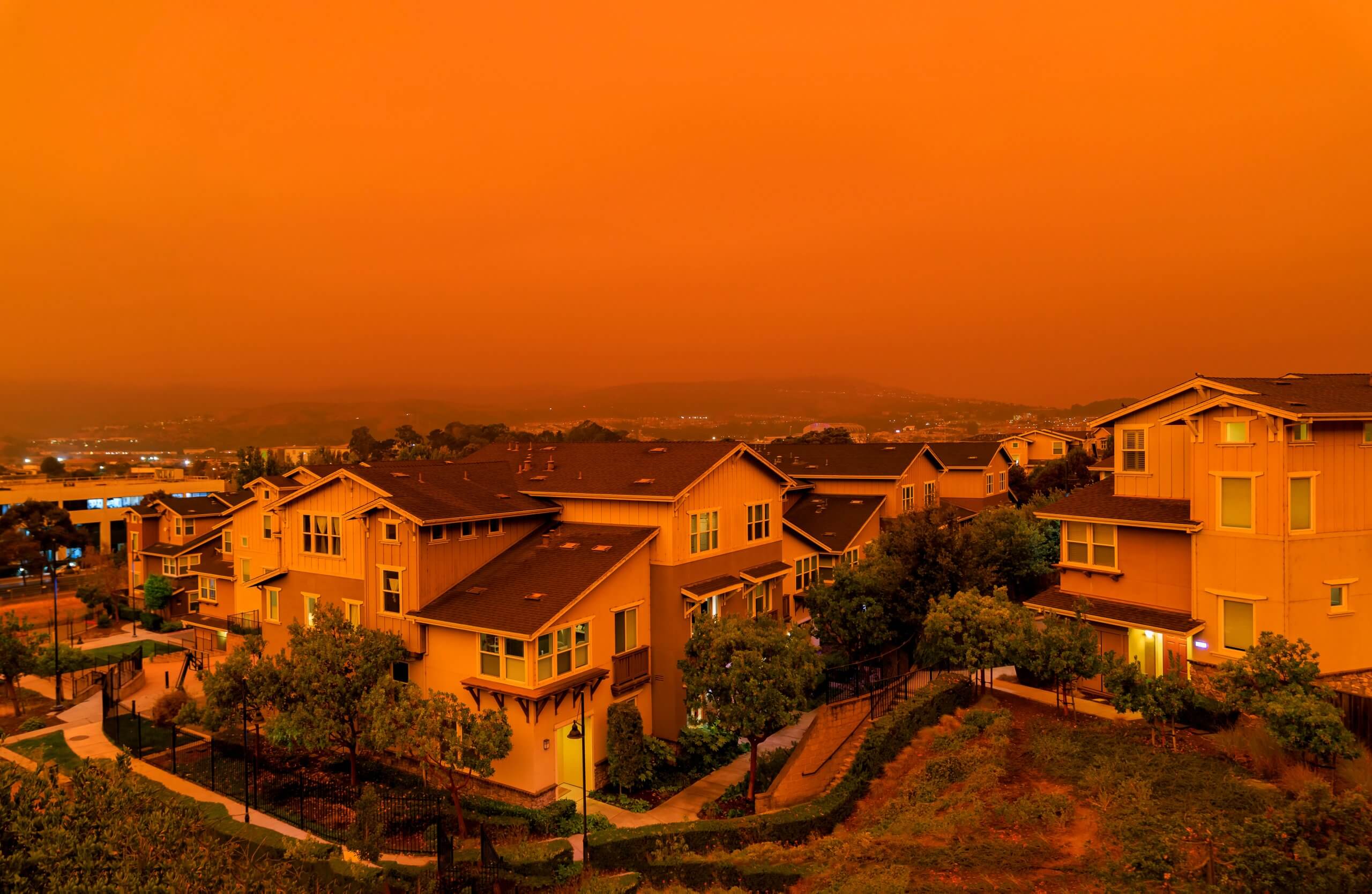Are you considering upgrading your HVAC system’s air filter to protect against wildfire smoke? You’re not alone. Investing in better home air filters to prevent wildfire smoke exposure indoors is both an efficient and cost-effective choice. With wildfire events continuing to increase and continued warnings of active wildfire seasons, now is the time to intervene in your space.
Why Wildfire Smoke Is a Problem
Okay, we know wildfire smoke isn’t exactly perfume. But it’s more than just an unpleasant odor.
It’s actually a cocktail of nasty stuff like gases and tiny particles called PM2.5. These particles are so small they can sneak past your body’s defenses and get deep into your lungs.
This can trigger all sorts of problems, from coughing and wheezing to more serious issues like heart trouble and asthma flare-ups.
Who needs to be extra careful?
- Anyone with Breathing Issues: If you have asthma, allergies, or other lung conditions, wildfire smoke is your enemy.
- Little Lungs: Kids are especially vulnerable because their lungs are still growing.
- Seniors: Older folks often have existing health conditions that smoke can worsen.
- Expecting Moms: Wildfire smoke can even affect pregnancies.
Do Air Filters Actually Help With Wildfire Smoke?
Think of your home’s heating and cooling system as the lungs of your house.
And just like your lungs have filters to keep out bad stuff, your HVAC system needs a good air filter to keep out wildfire smoke. Here’s the lowdown:
Filtering Finesse: The better the filter, the smaller the particles it can catch. And when it comes to wildfire smoke, you want a filter that can snag those tiny PM2.5 particles.
Trapping the Troublemakers: Air filters act like a net, catching those pesky smoke particles as air flows through your system.
Best HVAC Filters for Wildfire Smoke
The best air filter choice to minimize indoor smoke pollution in your home depends on a few factors.
1. What Kind of HVAC System / AC Unit Do You Have?
So long as your home has an HVAC system, upgrading your system’s air filter is a smart choice. For those with central air, it’s particularly important. And, very useful during wildfires. Central air conditioning recirculates indoor air. With wildfire smoke outside, you want to limit your system’s fresh air intake as much as possible and maximize air recirculation. With this in mind, choose the best home air filter possible to capture and reduce indoor pollutants.
2. Size, Fit and Filter Changes Matter
Air filters cannot keep wildfire smoke from entering your space in the first place. They do, however, capture and reduce wildfire smoke pollutants. The result is fewer particulate matter, ground-level ozone and hazardous air pollutant particles circulating.
For air filters to truly benefit indoor air quality, ensuring the filter is the correct size is critical. You want to ensure a tight seal around the air filter with little air bypass. Make sure there are no gaps. It should be a snug fit for proper air filtration. And because a clogged or dirty air filter cannot protect your family, stick to routine filter changes.
3. Which MERV Filter Rating To Choose?
Upgrading your home air filter during wildfire season is another helpful option. Choosing a new air filter means choosing a new MERV level. MERV ratings simply offer consumers a standardized efficiency scale to compare air filters. The standard in most home builds is a low-efficiency filter, falling somewhere between MERV 1-4, according to the Environmental Protection Agency (EPA). Medium-efficiency filters, MERV 5-8, provide significant air quality improvements while higher-efficiency MERV 9-12 filters are a considerable air quality upgrade.
However, the clear winner for healthy indoor air are the highest level: MERV 13-16 filters. These air filters remove smaller particles more effectively. MERV-13 or higher is also the clear winner to improve indoor air quality during wildfire events. EPA, along with many other air quality experts and environmental health groups recommend MERV-13 or higher to directly address wildfire smoke indoors. Higher-efficiency air filters work for smoke pollution because they effectively capture fine particulate matter in wildfire smoke.
If your area is prone to wildfires, have an extra air filter on hand. Do not underestimate the power of wildfire smoke. It’s better to be prepared in the long-run!
 High-Efficiency Air Filters: To help homeowners make the switch, we’ve collected all the facts about MERV-13 air filters, take a look →
High-Efficiency Air Filters: To help homeowners make the switch, we’ve collected all the facts about MERV-13 air filters, take a look →Additional IAQ Solutions
In addition to air filters, consider investing in a home air purifier. Whether you choose a portable HEPA air cleaner or a whole-home active air purification system, purification technology in addition to proper air filtration is a win-win. It will keep you and your loved ones safe during wildfire events—and all the time.
Another key point—avoid making indoor air quality worse. Don’t burn candles or incense that would add to the amount of smoke you’re possibly inhaling. Because fresh air isn’t an available option, you also generally want to minimize all sources of indoor pollution.
Improved Air Filtration
Investing in a high-efficiency, high-quality air filter has lasting health benefits. Even if your motivation is solely wildfire smoke, upgrading is a smart choice for many reasons. Above all, be ready and have a plan in place to protect your indoor space from wildfires.




